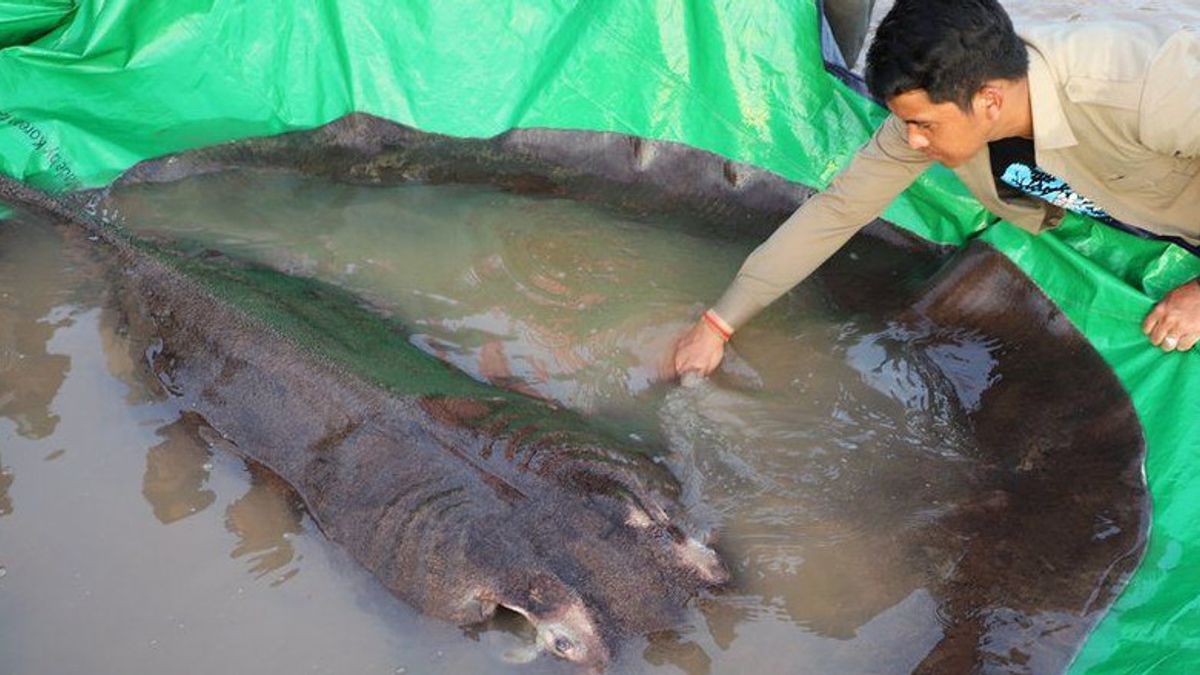JAKARTA - The 300 kg stingray caught in the Mekong River in Cambodia may be the largest freshwater fish ever documented.
Just so you know, this success overtakes the previous record holder, the 293 kg Mekong giant catfish caught in Thailand in 2005.
Why does the editor need to write the word maybe. The reason is, as quoted from the BBC, Monday, June 20, there is no official record or the largest freshwater fish database in the world.
The Mekong River is indeed rich in biodiversity. But overfishing, dams, and pollution are already threatening the river's ecosystem.
This river flows from the Tibetan plateau through China, Myanmar, Thailand, Laos, Cambodia, and Vietnam.
"In 20 years of researching giant fish in rivers and lakes on six continents, this is the largest freshwater fish we have encountered or documented anywhere in the world," said Zeb Hogan, a biologist who leads Wonders of the Mekong, USAID.
"Finding and documenting this fish is extraordinary, and a rare sign of positive hope, even more so because it is happening in the Mekong, a river that is currently facing many challenges," added Dr. Hogan, the professor at the University of Nevada.
SEE ALSO:
The evening of June 13, a local fisherman on the island of Koh Preah called to tell researchers he had caught a "very large" stingray. After being calculated, the length reaches 3.98 meters and the width is 2.2 meters translucent.
After being acoustically tagged to track their future movements, the stingray was released back into the river.
"The discovery of the stingray is proof that nature can still make new and amazing discoveries, and many of the largest aquatic creatures are still very understudied," said Dr. Hogan.
The giant freshwater stingray is an endangered species. This is the second giant stingray the team has examined since May - the previous one weighing 181kg.
"When record fish are found, it means the aquatic environment is still relatively healthy. This is in contrast to what we have seen in places like the Yangtze River, where scientists are reporting the extinction of the Chinese paddlefish," said Dr Hogan.
The English, Chinese, Japanese, Arabic, and French versions are automatically generated by the AI. So there may still be inaccuracies in translating, please always see Indonesian as our main language. (system supported by DigitalSiber.id)
















